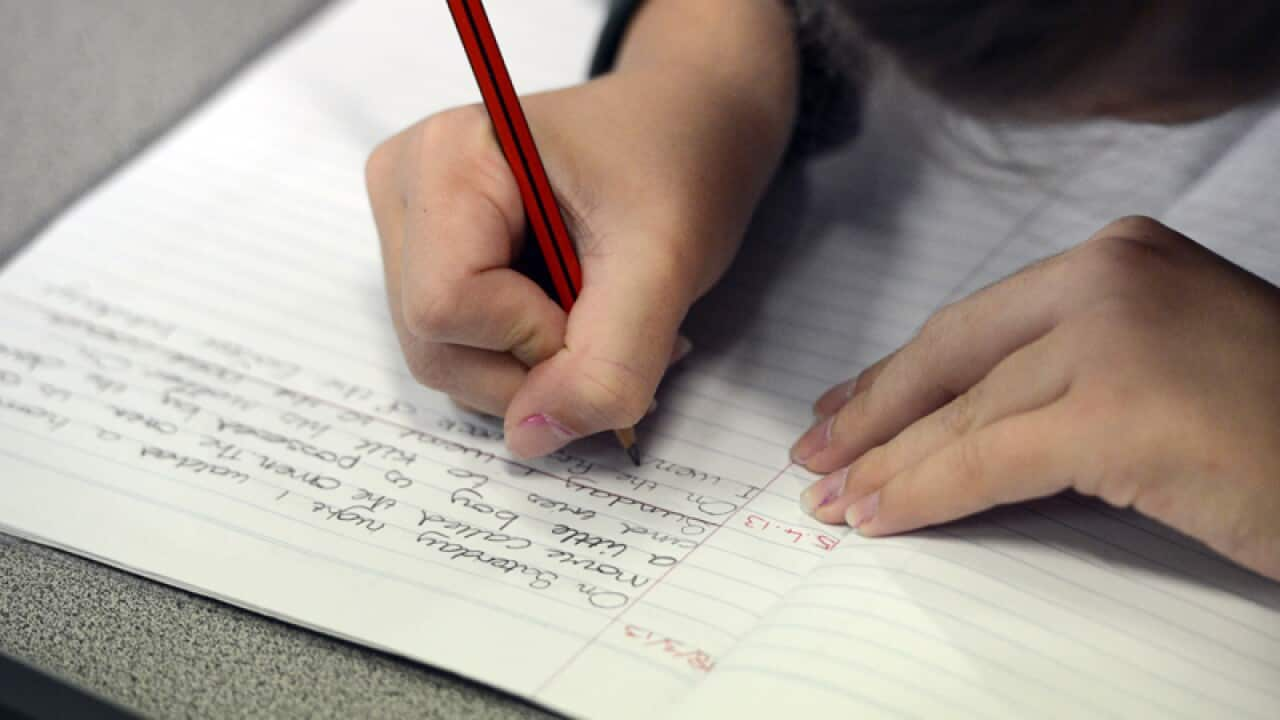Parents are often accused of being too pushy when it comes to their child’s education. The stereotype is of a demanding consumer parent and an over-scheduled child, enrolled in violin lessons, language classes, maths tutoring – and the most expensive private school the family can afford.
But not even money can guarantee some kids an education in the Australian private school system.
Australian discrimination law is designed to ensure that children cannot be denied enrolment in any public or private school on the basis of their disability. And that they’re treated equally once they are enrolled.
The federal covers both public and private schools. The legislation makes it clear that a school cannot refuse enrolment because of the child’s disability or offer enrolment on less favourable terms.
Under the act, a school can only refuse enrolment if it would cause an unreasonable level of difficulty – “unjustifiable hardship” – to enrol the child.
State and territory laws provide additional protections against disability discrimination in education, but apply to private schools in a more piecemeal way.
, made under the federal act, give more clarity and weight to this right to non-discriminatory enrolment.
But that children with disability are regularly being turned away from private schools.
With the backup of legal rights, parents don’t have to accept that.
So why aren’t they being pushier and demanding private school places for their children?
Knowing your child’s rights
Parents of kids with disabilities can be forced into the role of constant advocate for their child. When a parent has to act as advocate for their child in several complex areas of life, taking on one more fight can be too much.
Parents also have a reasonable fear that by complaining or forcing a school to enrol their child they’re setting up that child for a school experience marred by exclusion and ostracism.
Several practitioners and advocates have commented on the huge number of people with complaints who would not bring them, for fear of making their already vulnerable child more disadvantaged.
But an early complaint may be the best way to clarify the child’s rights from the start, without having to intervene throughout the school experience.
Parents often don’t realise their child has a right to be enrolled and to receive an equal standard of education in a private school. Even when parents know their child has education rights, they still may not believe those rights will be upheld.
The legal process
The federal or state anti-discrimination body will attempt to resolve a discrimination complaint through conciliation between the parties in the first instance.
It’s only if this is unsuccessful, and the person making the complaint wants to proceed further, that the complaint goes before a court or tribunal.
Unfortunately, cases on disability discrimination law have often fared badly in the court system. And when parents hear about such cases, it has a chilling effect on further legal action.
It can be daunting for individuals to take on institutions, let alone when the prospects of success seem low. And discrimination cases that do make it to court are often the “hard” cases, the ones less likely to succeed because they’re fraught and complex.
But the hidden good news here is that many complaints to the Australian Human Rights Commission or state anti-discrimination bodies are successfully and privately resolved between the parties. Because this is a confidential process, the public – including parents – don’t get to hear these good news stories.
Some of the cases that have succeeded have been transformative. This includes the case involving a young girl, Scarlett Finney, with spina bifida who was refused enrolment at a Sydney private school. These cases have paved the way for future students and more inclusive schools.
Once a child is enrolled in the school of choice, it is important to remember that the right to equal education extends to their participation in all aspects of school life. A school may need to provide additional support for a child to enjoy those rights.
How to make a case
What should you do if you believe your child has been discriminated against? Here are some tips for parents:
- Know your child’s rights. Information is available from the or your state or territory anti-discrimination body.
- Once informed, speak to the school directly about your concerns. Most discrimination occurs unintentionally, because of lack of information and understanding. Building good communication and supportive relationships within the school, where possible, is the best and simplest way to ensure that your child receives an equal education.
- If direct communication with a school is ineffective, you can get information about making a discrimination complaint from the or your state anti-discrimination body.
- You can also get legal advice or assistance from a community legal service, such as the or your local community legal centre.
• This piece is part of a three-part series on  Karen O'Connell's research was supported under Australian Research Council's Discovery Projects funding scheme (project number DP150102935) and a University of Technology Sydney Chancellor's Postdoctoral Research Fellowship. The research discussed in this article was completed under Ethics approval UTS HREC REF NO. 2014000013.
Karen O'Connell's research was supported under Australian Research Council's Discovery Projects funding scheme (project number DP150102935) and a University of Technology Sydney Chancellor's Postdoctoral Research Fellowship. The research discussed in this article was completed under Ethics approval UTS HREC REF NO. 2014000013.

